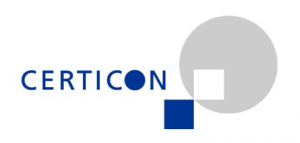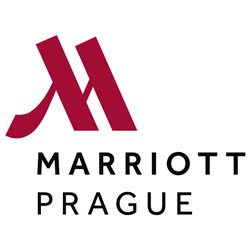
Confidence and Focus: Prescriptions for the Economic Recovery
This economy will turn from crisis to recovery when enough individual businesspeople have enough confidence to invest and create jobs in the country. That is why AmCham decided to devote this year’s General Assembly to asking a basic question that seems to have been ignored in the long and heated debate over how to rescue the Czech Republic from its third, and most sustained, economic crisis since the Velvet Revolution. The question, in fact, is very simple: What will it take for businesses to switch from saving for bad times to spending for better?
The right people to ask this question are not macroeconomic experts or politicians or media pundits, but business people themselves. Business people are the ones who collectively will decide if they have enough confidence that a crown spent today will turn into a profit in the future. To answer this question, AmCham gathered four individuals who are faced with such decisions daily, and whose decisions could provide a leading indicator of when a recovery will occur: Zbynek Frolik of Linet, Petr Stracar of GE, Martin Jahn of Volkswagen and Frantisek Dostalek of KPMG. What follows is a summary of their discussion:
- Pessimism is consuming the economy. Doubt is healthy; pessimism is fatal. The panelists agreed that the economy faces many structural issues, but emphasized that this issues cannot be solved without enough faith in the future of the country. Without such faith in tomorrow, people will not make the needed sacrifices, or take the necessary risks, today.
“We have a very strong tendency to see the bad in everything,” Frolik explained to the audience. “It is true that you cannot make a good decision without understanding what can go wrong, but it is also true that you cannot make a good economic decision without having some belief that things can go right. You have to be willing to take risks.” - The continued political crisis is feeding the pessimism. Politicians distrust each other, and the public distrusts all of them. Such an environment breeds conspiracy, which undermines every decision the government makes. Public policy, therefore, is perceived only as a political tool, and each decision is weighed not for its public benefit, but for the private advantage of politicians and parties.
“The first step is to restore trust in government,” said Dostalek, who was re-elected as AmCham’s president. “The role of government is redistribution of national wealth to increase the prosperity and security of all. Every decision government makes benefits someone and disadvantages someone else. A government that is not trusted to make decision in the public interest soon becomes embroiled in scandal, and cannot make those decisions or implement them. That is why we urged the reform of public procurement. It is also why we support the reform of political party finance and the public administration.” - The key focus of policy should be on people. It is nice to believe that the government can wave a wand and solve the crisis. No government policy can generate private sector growth. The private sector must generate new ideas and execute them well. That depends on creativity and good management. Both of those qualities comes down to the talent, the motivation, and the discipline of people.
“It starts with the quality of people,” Jahn told the audience. “All those other things we can deal with if we have good people. We emphasize university education here, and it is very important for our future, but we also must remember that our industrial tradition relies on the qualities of our technical workforce, and we need to do more to keep the people on the shop floor at the top of the global rankings.”
“Every economy wants to get into research,” Stracar said. “For us to be successful, we have to be aware of our resources. The Czech Republic spending 3% of its GDP on research is quantitatively different than Germany or France spending the same proportion. We cannot just spread out the resources we have over the same number of areas as those countries. We are going to have to be more concentrated to become successful. We need to pick the areas where we not only have good researchers, but we have the industry to produce those products efficiently and the distribution channels to sell them in order to increase the national wealth.” - We need to think regionally: both macro-regions and micro-regions. National borders are political creations, not economic ones. Economies are more organic, and their size depends on their productive relationships. Micro-economic regions usually contain one catalyst city and its subsidiaries. Macro-economic regions consist of several catalyst cities that grow from the innovations of each other. Czech economic policy, therefore, needs to both expand and contract. It needs to recognize how it can benefit from the wider region of Central and Eastern Europe. And it must study how the various economic centers within its borders- Prague, Brno, Ostrava, and Plzen- can work together, and not compete against each other.
“When we look at the Czech Republic, we do not see it as an isolated country, but as a piece of a regional puzzle,” Stracar explained. “This region, which stretches from the Baltic Sea to the Mediterranean, has 140 million people, all potential employees, partners and consumers. It is emerging region, and should be considered as a place with the potential of growth. There is no economic reason why Prague and the Czech Republic cannot be the hub of that region, and the primary driver of its growth. It is just a question of how much we want, and how much we are willing to work for it.”
Czech version of the article is attached or can be downloaded here.
For more information on competitiveness visit our new website www.czechcompete.cz. If you are interested in an audio recording of the discussion or more information about AmCham’s economic development or good governance projects, please contact Veronika Szentivanyiova at veronika@amcham.cz.
From the left: Frantisek Dostalek of KPMG, Petr Stracar of GE, Martin Jahn of Volkswagen and Zbynek Frolik of Linet.
Log In




